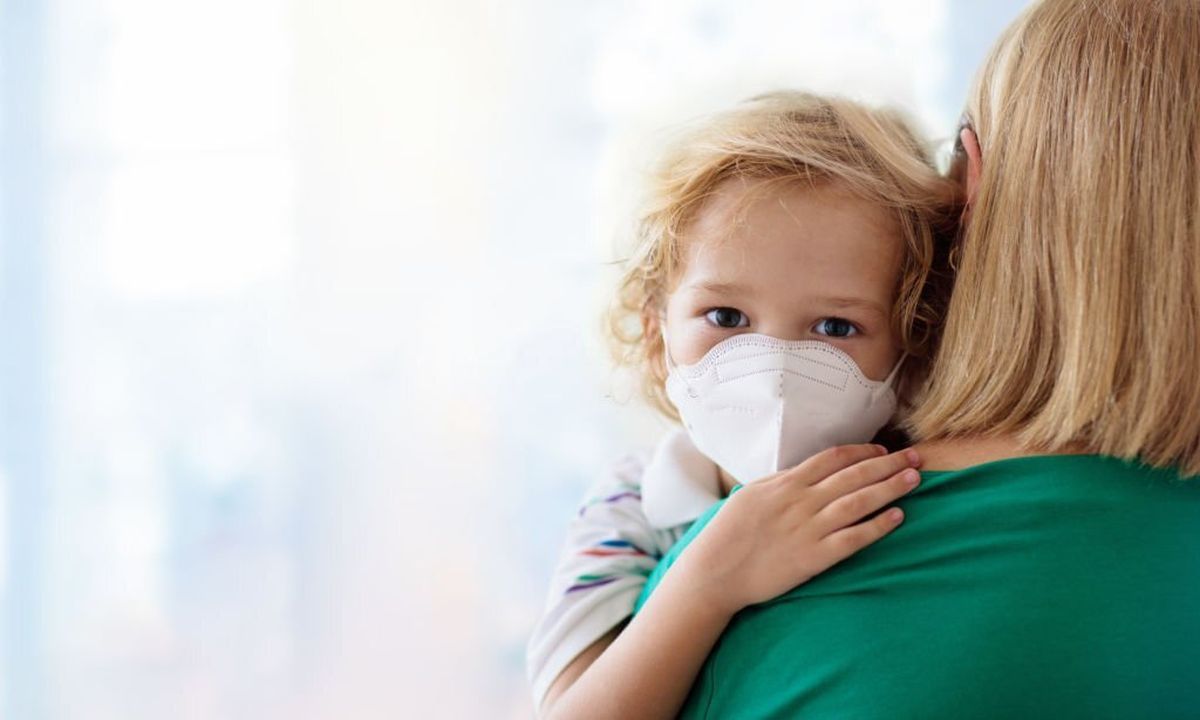According to a new modeling study, published in JAMA Pediatrics, the number of children estimated to have experienced the death of a parent or caregiver as a result of the COVID-19 pandemic has climbed to more than 10.5 million globally as of May 1, 2022.
Excess mortality data from the World Health Organization shows that around 7.5 million children worldwide were orphaned through covid, and 3 million more lost a primary caregiver. In other news, there’s a mystery over why new covid variants have seemingly stalled in growth.
A new study, involving the University of Oxford, Imperial College, the African Institute for Mathematical Sciences, the Centers for Disease Control and Prevention (CDC), and the World Health Organization (WHO), builds on the best available and most conservative data recently published by WHO on excess COVID-19 deaths (14.9 million as of Dec 31, 2021), to establish estimates of orphaned children in every country.
This is the first-time availability of these extensive data on excess deaths for every country, and it facilitated the data modelers to revise global minimum estimates of pandemic orphanhood and caregiver death among children based on these excess deaths.
Excess deaths are generally defined as the difference between the observed numbers of deaths in specific time periods and expected numbers of deaths in the same time periods.
Estimates of excess deaths can provide information about the burden of mortality potentially related to the COVID-19 pandemic, including deaths that are directly or indirectly attributed to COVID-19.
In this study, the authors analyzed country-level deaths, fertility rates, and national excess mortality data provided by the WHO, the Economist, and the Institute for Health Metrics and Evaluation, and used mathematical modeling to develop global estimates based on the WHO estimates, which were the most conservative.
‘The death of a parent or caregiver places children at a heightened risk of lifelong adversity unless given appropriate support in time,’ said lead author Dr. Susan Hillis, who spearheaded this work during her tenure at the CDC and now serves at Oxford as Co-Chair of the Global Reference Group for Children Affected by COVID-19 and Crisis, which is hosted by WHO.
First author Joel-Pascal Ntwali N’konzi (African Institute for Mathematical Sciences) commented: ‘The more than 10 million children left without caregivers by COVID-19 will face all kinds of challenges. In my continent, Africa, more than 2.5 million children are affected, and as they struggle to survive without caregivers they face increased risks of violence and sexual exploitation. The best time to act to help these children and their families is now.’
Globally, children who experience the loss of a parent or caregiver are at an increased risk of poverty, exploitation and sexual violence or abuse, HIV infection, mental health challenges, and severe distress.
‘To reduce the risk of such consequences, evidence-based care for children centers around these three components: prevent caregiver death through vaccines, containment, and treatment; prepare families to provide kinship care, foster care, and adoption; and protect children from poverty, childhood adversity, and violence.
These strategies will put the programmatic and financial infrastructure in place to secure a better future for children and families around the world,’ Dr. Hillis added.
The initial, first-of-its-kind study, a collaboration with 13 international organizations, found that a minimum of 1.5 million children had experienced the death of a parent, caregiver, or both, due to COVID-19-associated deaths in the first 14 months of the pandemic. Prior to the COVID-19 pandemic, there were an estimated 140 million orphaned children worldwide.
In a subsequent global study, which incorporated increased availability of excess death data (for several low and middle-income countries), and accounted for the rapid changes experienced during the pandemic, such as the emergence of the Delta variant, the authors expanded their modeling estimates to include epidemiological characteristics of COVID-19-associated orphanhood and caregiver death – revealing the minimum number of orphaned children globally surged to 5.2 million by Oct. 31, 2021.
The authors used the same methodology for combining age-specific deaths and fertility rates to generate estimates of orphanhood and caregiver loss among children, for each study.
They factored in excess death data when available for the first two studies; and for this third study, the authors were able to use excess deaths for every country (except when excess deaths were negative), to update the COVID-19-associated estimates of parent and caregiver loss.
‘Findings from our earlier report showed that two out of every three affected children are between the ages of 11 and 18 globally,’ said Professor Lucie Cluver, an author from the University of Oxford’s Department of Social Policy and Intervention who helped lead this work.
‘We know that they can benefit from evidence-based support packages that include parenting programs and economic support while avoiding placing children in institutional care. Our findings show the urgent need to invest in response plans focused on children at greatest risk and in the locations most affected.’
The White House Presidential Memorandum on the long-term effects of COVID-19 recognizes the need to support children bereaved by COVID in the U.S., based on the estimates of these studies. Additionally, legislative, and programmatic initiatives at national or city levels are being considered in Peru, Mexico, Brazil, Eswatini, and South Africa.
Actual Country wise data is still limited
Authors from Oxford University, the African Institute for Mathematical Sciences, and Imperial College used mathematical modeling to generate their estimates and note, that an important limitation is that they cannot measure actual country-by-country counts of the numbers of children affected by a parent or caregiver’s death.
Using this approach allowed them to address key limitations of the previous two studies, which included the variable availability of testing and widespread under-reporting of deaths, particularly in low and middle-income countries.
They say future pandemic responses should include surveillance systems to monitor the numbers of children affected by every parental and caregiver death, track needs for services, and provide referral platforms that help point families towards appropriate support.
‘We cannot ignore the needs of ten million children who have lost a mother, father, caregiving grandparent or other relatives,’ said Dr. Seth Flaxman, Associate Professor of Computer Sciences at the University of Oxford, a senior author of the study.
‘A child whose parent died at the start of the pandemic is still a child without that parent now.’ said Juliette Unwin, Ph.D. at Imperial College.
To assist in this study, CDC collaborated with the WHO, and other international partners of the Global Reference Group on Children Affected by COVID-19 and Crisis to support the Imperial College of London and the University of Oxford in the establishment and sustainability of an orphanhood calculator.
The orphanhood calculator provides nearly real-time estimates of the number of children affected by COVID-19 and excess deaths during the pandemic. Data is available by country and globally. Visitors to the site can also compare countries over time with the COVID-19 Orphanhood Trends Tool.



